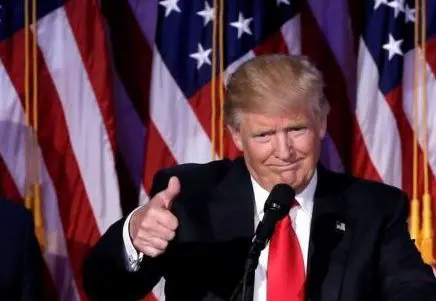Not even a month into his term, U.S. President Donald Trump has already been the subject of much controversy. The billionaire New Yorker will not enjoy the "honeymoon" period - the first 100 days in which both the press and the president take it easy - that many other U.S. presidents have historically enjoyed.
Trump shocked the world in November when he clinched the presidency from Democratic rival Hillary Clinton, as polls and experts expected Clinton to be the winner. But the new commander-in-chief, ever controversial, is already seeing demonstrations against his presidency and much criticism in the U.S. press.
"Trump is starting as the least popular new president in recent memory," Brookings Institution Senior Fellow Darrell West told Xinhua.
"He has high negatives and Democrats are united in fighting his changes...There are likely to be major protests at every step of the way as Trump makes various policy changes," West said.
Indeed, the weekend and Monday saw protests in several cities nationwide over Trump's temporary ban on visas from seven predominately Muslim nations that have serious problems with terrorism.
Critics said the ban is unfair to those not involved in terrorism, and some have called it anti-Muslim. The Trump administration says the ban is a bid to make the nation safer from violent attacks from radicals, and supporters insist the ban is not anti-Muslim as it does not cover people in Indonesia, Pakistan, Afghanistan and many other Muslim nations.
Dan Mahaffee, an analyst with the Center for the Study of the Presidency and Congress, told Xinhua that for Trump, the lack of a honeymoon comes from the press, as well as growing rifts between the president and Congressional Republican Party (GOP) leadership on issues such as trade and infrastructure spending.
Some of the pressure the Trump administration faces is from its promises to shake up the Washington establishment and the need to keep highly unorthodox, populist campaign promises, Mahaffee said.
West said Trump could have had a honeymoon if he had reached out to those who didn' t support him, right after the election.
"He could have been gracious and said he wanted to represent all of America. Instead, he handled his transition period in a partisan manner and did nothing to assuage the concerns of opponents," West said.
Some experts said that due to the increasingly partisan nature of U.S. politics, along with the media environment, a "presidential honeymoon" may become a thing of the past.
Mahaffee said a honeymoon period is increasingly unlikely for future presidents, as the media cycle now analyzes their agenda before they even enter office.
Other presidents have also had short honeymoon periods.
Mahaffee noted that former President Bill Clinton's honeymoon was quickly derailed by a push for healthcare legislation early in his administration. That not only ended the honeymoon, but also allowed the then-minority GOP to focus on the 1994 midterm elections.
Similarly, for former President George W. Bush, the honeymoon period was under the shadow of the controversy over who actually won the election, as the results of the 2000 election were contested.
(APD)
 简体中文
简体中文

